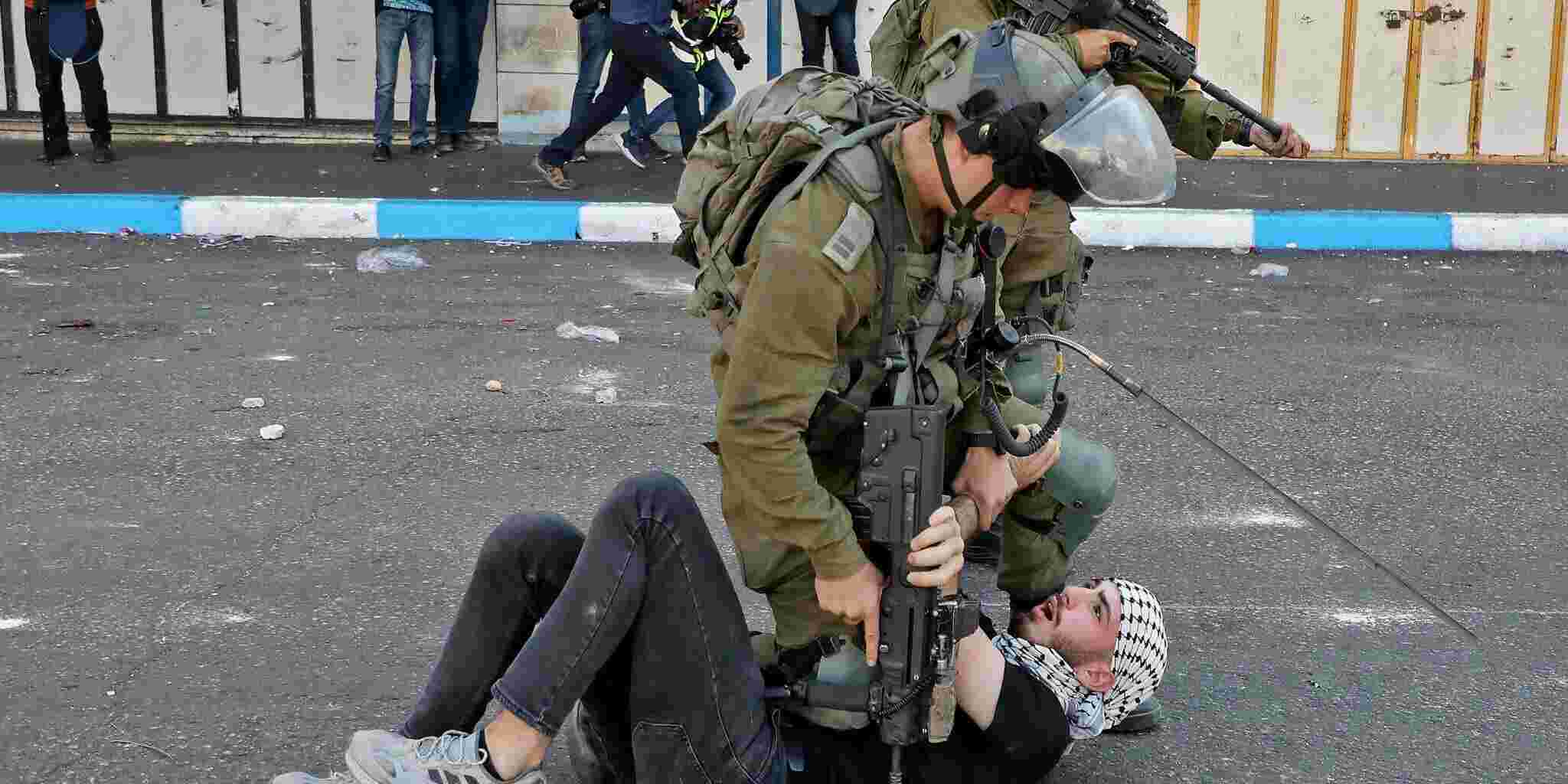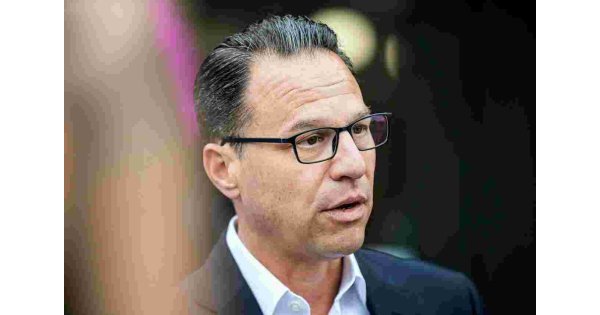Support Us: ICJ Ruling Validates Palestinian Claims of 57 Years
An Israeli soldier pins a Palestinian protester to the ground in Hebron, located in the occupied West Bank, during an October 2022 demonstration. (Photo: Mosab Shawer/AFP/Getty Images)
The ICJ Ruling Validates Palestinians' Claims for Over Five Decades
Israel's occupation of Palestinian territories is deemed illegal and constitutes apartheid, according to a ruling from the International Court of Justice (ICJ) in The Hague.
*Jonah Valdez | July 19, 2024, 5:02 p.m.*
The latest ruling from the United Nations' highest court reinforces long-held beliefs among Palestinian advocates: Israel's occupation of their lands, particularly the settlements in the West Bank, is illegal and must be terminated. The ICJ's advisory opinion not only calls for reparations for Palestinians who have been under occupation since 1967—a significant move for the court—but also categorizes Israel's treatment of Palestinians as a form of segregation and apartheid. The court additionally determined that countries providing aid that supports the illegal occupation contravene international law and affirmed the Palestinians' right to self-determination.
Jessica Peake, a UCLA Law professor specializing in international law, believes this ruling could change how the international community approaches Palestinian statehood issues. She was particularly surprised by the court's strong stance on Israel's systematic abuses against Palestinians, noting that it established a finding of apartheid as a consequence of racially discriminatory laws that reduce Palestinians to second-class status.
However, not all advocates for Palestinians view this ruling as a cause for celebration. Eitay Mack, an Israeli attorney who advocates for Palestinians, emphasized that the decision does little to alter the current conditions on the ground. "In the West Bank, it’s business as usual," he remarked after hearing reports of Israeli settlers attacking Palestinians shortly after the ruling. "The court just confirmed what was already known. Unless there is substantial political will from governments, there will be no meaningful change towards a two-state solution."
Israel's occupation began during the 1967 Arab-Israeli War, during which it seized the West Bank and Gaza, along with East Jerusalem, and started establishing settlements that support Israeli civilians on Palestinian land. While Israel removed its troops and settlements from Gaza in 2005, it has continued to expand settlements in the West Bank. In recent months, Prime Minister Benjamin Netanyahu's far-right administration has increased settlement activity considerably, using the ongoing conflict in Gaza as justification.
In response to the ICJ ruling, Israeli officials dismissed its conclusions. Prime Minister Netanyahu reaffirmed Jerusalem's status as "our eternal capital" and referred to the West Bank as "the land of our ancestors," invoking biblical terms like "Judea and Samaria." "No ruling from The Hague can distort this historical fact," he stated, insisting that the legality of Israeli settlements remains unchallenged.
B’Tselem, an Israeli-based human rights organization, welcomed the ICJ's decision after years of advocacy to end the occupation. They argued that the international community has turned a blind eye to the reality of the situation by accepting Israel's claim that its occupation is temporary and that it seeks diplomatic solutions. "The ICJ's advisory opinion dismantles these justifications, and it is now imperative for the international community to utilize all available means—criminal, diplomatic, and economic—to pressure Israeli leaders to end the occupation," they asserted.
Recently, a growing number of nations have recognized Palestine as a state, with Norway, Spain, and Ireland joining 143 other countries in this stance. The ICJ ruling may encourage more countries to follow suit, as it portrays Israel's occupation as a barrier to Palestinian statehood. In contrast, the U.S. recently vetoed a U.N. Security Council resolution recognizing Palestinian statehood, asserting that it could only arise from direct negotiations between Palestine and Israel. The United States provides billions in military aid to Israel annually.
The Israeli government previously claimed that the ICJ ruling would negatively impact ongoing negotiations. Concurrently, Israel's parliament adopted a resolution that explicitly rejects the prospect of Palestinian statehood, claiming it poses an "existential threat" to Israel. However, Peake noted that the ICJ's ruling counters this narrative and supports Palestine's right to self-determination. "The ICJ decision will give states the legal justification they need to recognize Palestine, offering them some insulation from political pressures imposed by the U.S. and Israel," she stated.
While Peake acknowledged prior U.N. declarations condemning Israeli occupation were common, many were issued by bodies specifically focused on Palestine. The ICJ's ruling stands out for its strong language and widespread backing from U.N. members regarding the occupation. "I don't expect immediate changes," she said, "but hopefully this ruling equips states and the international community with stronger tools to address issues in occupied Palestine."
---
This rewrite aims to convey the same key points and perspectives clearly, while providing context for readers who may be unfamiliar with the subject matter. Let me know if you have any further requests or need additional edits!
The ICJ Ruling Confirms What Palestinians Have Been Saying for 57 Years
Israel’s occupation of Palestinian territories is illegal, a form of apartheid, and must end, says the U.N.’s high court at The Hague.





